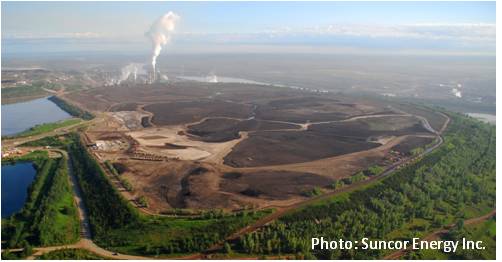20 item(s) were returned.
Director of International Public Policy and Advocacy
Global Innovation Policy Center, U.S. Chamber of Commerce
In June, Shell kicked off its controversial Arctic program to conduct exploratory operations in the Chukchi Sea and the Arctic Ocean. Shell plans to drill two wells beginning in August 2015, when ice clears. Shell initially purchased leases to drill in the Arctic in February 2008 from the Bush Administration’s Interior Department, leases that have been repeatedly endorsed by the Obama Administration, most recently in March 2015. The success or failure of these operations could significantly affect future efforts to explore for hydrocarbons in the region. Shell previously abandoned its Arctic exploration program in the 1990s due to high comparative… [more]
View InsightRecent increases in U.S. natural gas and oil production – increases dramatic enough to drive speculation about and calls for U.S. exports of these resources – have brought the prospect of an energy self-sufficient U.S. into sight, while geopolitical and market volatility around the globe continue to make energy independence an attractive policy goal. However, the question remains: Would U.S. energy independence necessarily mean U.S. energy security? According to a report from Securing America’s Future Energy, The New American Oil Boom: Implications for Energy Security, “energy security,” defined as our economy’s ability to withstand shocks to energy supply, is too… [more]
View InsightOn Thursday, June 14th the bipartisan House Oil & National Security Caucus — co-chaired by Rep. Jack Kingston (R-GA) and Rep. Eliot Engel (D-NY) — and OurEnergyPolicy.org hosted a fantastic panel discussion called Gas Prices & National Security. The panelists included former Director of Central Intelligence R. James Woolsey, American Enterprise Institute scholar Kenneth P. Green, and Bloomberg Government energy analyst Rob Barnett. What do you make of the panelists arguments? What is the relationship between gasoline prices and national security? Are national security concerns sufficient grounds to rewire America’s liquid fuels infrastructure?
View InsightIn a recent research note, Swiss bank UBS AG expressed uncertainty about the economic impacts of surging U.S. oil and gas production. While the domestic energy boom is widely thought of as an unequivocal economic driver, UBS analysts suggest that it may not be that straightforward. [E&E News (Sub. Req’d.)] If the current U.S. oil and gas boom – which is driving domestic supply up and prices down – is sustained, UBS projects, it could spur marginal economic growth of around 0.8% annually over the next five years. However, increased U.S. oil supply would reduce the need for imported oil,… [more]
View InsightThe House Armed Services Committee’s newly proposed 2013 Pentagon budget contains a provision that would prevent the U.S. Department of Defense (DoD) from purchasing alternative fuels, largely in the form of biofuels, if they cost more than traditional fuels. The proposal comes at a time when the military is ramping up its use of biofuels and the U.S. biofuel industry could use the certainty provided by a customer as large and influential as DoD. An example of DoD’s alternative fuels efforts: In 2009, the navy announced a plan that would have the navy utilize 50% non-oil energy in its operations… [more]
View InsightLast week, House and Senate Appropriations Committees approved separate and distinct versions of a Fiscal Year 2013 Energy and Water Development appropriations bill. The legislation sets spending levels for DOE, among other agencies, and specific programs such as the State Energy Program (SEP). The SEP is administered by DOE, and provides funding to states for use by State Energy Offices. According to the National Association of State Energy Officers (NASEO), with “SEP funds and the resources leveraged by them, the 56 State and Territory Energy Offices develop and manage strategic programs that support the private sector in increasing energy efficiency,… [more]
View InsightEastern Utah may see tar sand production begin later this year. A private company, the Alberta-based U.S. Oil Sands, has invested $6 million since 2005 to test the oil sands at its 6,000-acre lease in eastern Utah and develop pilot projects on state land. They were granted preliminary permits to begin production in 2009, and have been raising capital and developing plans to begin production. “We would expect to hopefully to have this up and running by about September of next year,” said Cameron Todd, CEO of U.S. Oil Sands. The Bureau of Land Management estimates that the sands could… [more]
View InsightIn 2007, US EPA began using renewable identification numbers (RINs) to track fuel producer compliance with the Energy Policy Act of 2005’s Renewable Fuel Standard (RFS), which calls for fuel blends to contain a minimum amount of renewable fuels. RINs quantify the biofuel, produced or imported, used in fuel blends. Fuel producers buy and sell them, and then submit them to demonstrate compliance. The complexity of RIN markets and RFS compliance has come under scrutiny lately, as several instances of fraud have emerged. In 2010, two small biofuel producers – Clean Green Fuel and Absolute Fuels – started selling fraudulent… [more]
View InsightA recent Congressional Research Service report titled “Rising Gasoline Prices 2012” states that Congress has “limited short term options … to address gasoline prices.” The report identifies six short-run policy options – a Strategic Petroleum Reserve release, a gasoline tax holiday, relaxed fuel specifications, limits on refined gasoline exports, limits on commodities speculation, and diplomatic measures – and concludes that it is unclear “what the price impact of these short term options would be” and that they would involve policy tradeoffs which may include “national security, fiscal, and health priorities.” The report briefly addresses longer-term policy options, i.e. “measures that… [more]
View InsightA paper by researchers at the University of Alberta, Edmonton found that the impact of Canadian oil sands mining, and subsequent land restoration, on carbon release has been significantly underestimated. This is due to the mining process’s destruction of peatland – bogs, swamps, etc. that host partially decayed organic matter – which, when destroyed, releases high levels of carbon. From the paper’s abstract in the Proceedings of the National Academies of Science: “We quantified the wholesale transformation of the boreal landscape by open-pit oil sands mining in Alberta, Canada to evaluate its effect on carbon storage and sequestration. Contrary to… [more]
View Insight
